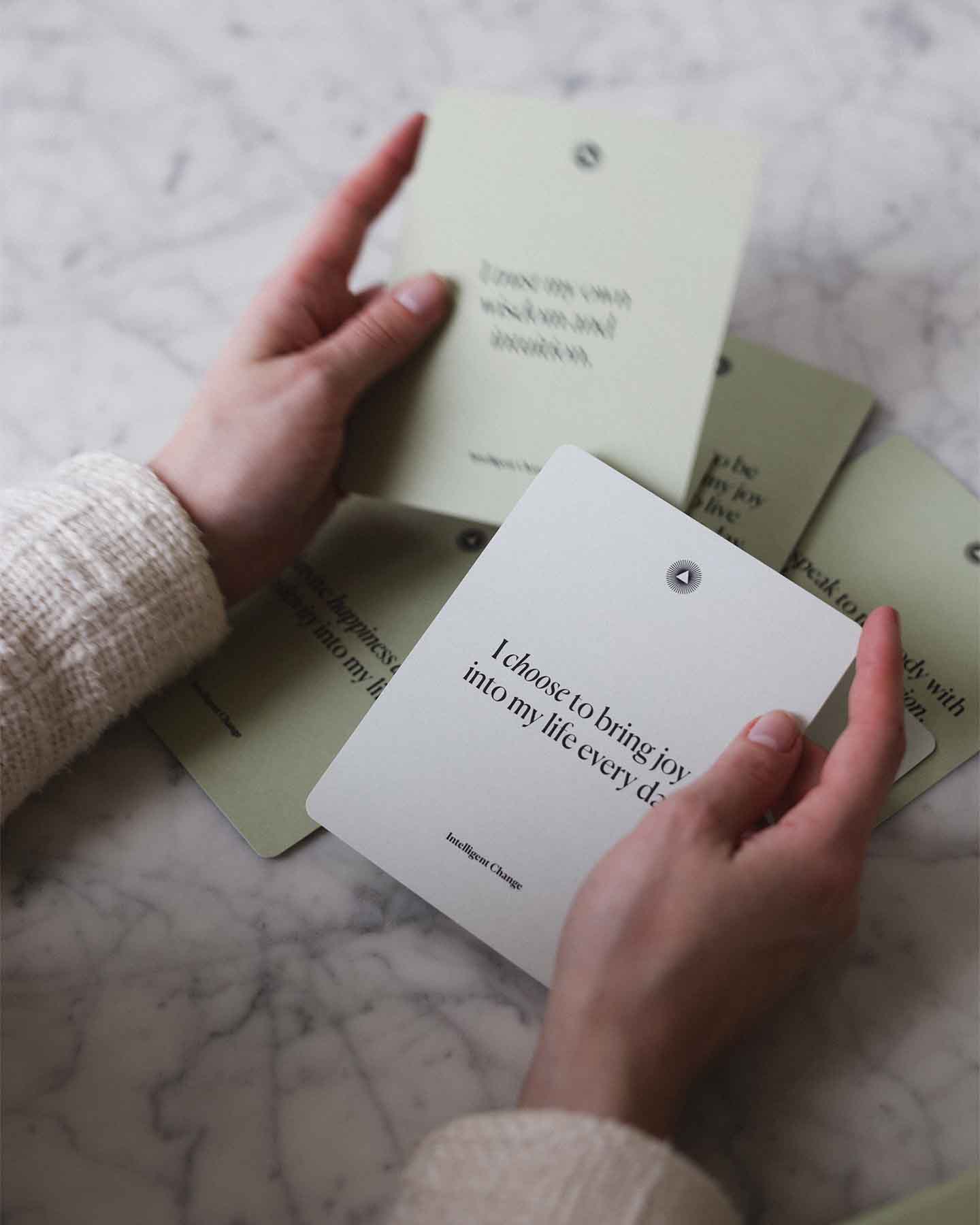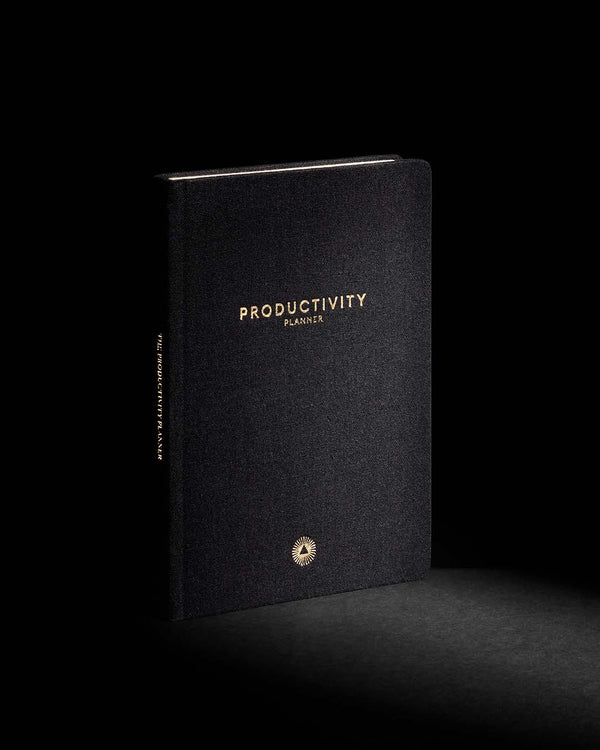The Consistency Key: Building Emotional Wellness Habits

What’s on our to-do list for today? Send an email to the accountant about that issue you’ve been putting off for a week. Got it, done. What’s next? Do research for the work project that is due in two days. Doing it, doing it, done. Moving on. Write a birthday card for a friend. Ok, google the birthday wishes, you have little time to spare today.
In the hurley-burley of modern life, it has become so easy to overlook the core of our assignments, the soul in our projects, the beating heart behind everything that we do—ourselves. Where are you on your to-do list? Is your well-being hiding somewhere in between appointments and errands?
We can practically hear some of you, dear type-A personalities, argue that it all needs to be done anyway. Yes, we need to buy groceries, pay the bills, and honor our professional deadlines. But have you applied the same exemplary consistency you display in your work ethic to your mental health? Maybe so, in which case you’re winning at life.
However, our educated guess is that you’re here to find some peace of mind. Maybe you feel overwhelmed, chronically stressed, drained, and depleted. Perhaps you’ve sensed some darker undertones in your mood lately. Maybe you’ve lost the spark somewhere along the way. It happens to the best of us. And before you deflect, take a breath, relax your shoulders, unfurrow your brow. You’re here for a reason, remember?
Now that we have your attention, let’s dissipate that brain fog before it spreads further into your heart. First, to understand where the trouble comes from, we suggest stepping back in time. Who we are and how we behave now has a starting point in our psychological development in early childhood or even infancy. Our present is deeply rooted in our past.
If you carry any wounds, know that sometimes they reopen in unexpected ways. From time to time, the stitches we carefully put in place can rip oozing perfectionism, workaholism, or feelings of unworthiness. As a result, we dismiss self-care as a weakness. No rest for the wicked. But where does it take us, that running ourselves to the ground? Not to sound morbid but exactly there, to the ground.
So where are you on your to-do list?
Self-awareness is one of the master keys to the door of progress. As an example, allow us to highlight a type of psychological turmoil that has the potential to make you feel less than—the mother wound. Here’s what happens. Deep emotional pain is passed down to her children from a mother's own unresolved traumas. If your parent was avoidant, provided financial, yet never emotional security, lacked empathy and didn’t allow you to express negative emotions, was overly critical but also expected you to support them—that breeds consequences in your future.
One of them is constantly trying to prove your worth to the world by overworking yourself, taking on more than your shoulders can carry, by seeking validation and approval from others to compensate for the lack of love in your formative years. Naturally, we avoid self-care like the plague in this scenario because we feel guilty for joy and any additional minute of downtime.
According to Dr. Gabor Mate, world-leading physician specializing in childhood trauma, our psychological wounds act exactly like physical ones. For example, if you have a wound around not feeling enough, you might react in an unhealthy way whenever someone touches that soft spot. Like when you lose the ability to say no to people or projects, even though you are already stretched too thin professionally or otherwise.
When it scars over, the tissue protecting the wound grows thick, rigid, and inflexible. It has no nerve endings so there is no sensation in it—traumatized people disconnect from their feelings, they get stuck in emotional states from when they were first traumatized. As a result, something happens in the present and we react to it as if we’re back in the past when it first happened. We act from a place of yesterday’s pain.
Our overall well-being relies heavily on our emotional wellness. We can put on masks, suppress what wants to come to the surface, but if we deny ourselves our humanity, we risk becoming numb to life. And that’s still only the most optimistic scenario. So what do we do to process our inner turmoil?
First of all, give yourself permission to feel what needs to be felt. If you suffer from the mother wound or were generally raised in a strict environment, chances are you now think that anger or pain are bad emotions that should be repressed. There are no bad emotions, only data points on which we draw valuable conclusions. So what do you see on your inner chart? Is the diagram of your heart healthy or can you see something that distorts your inner peace?
Where are you on your to-do list?
Look within. You are quite likely to find something that has been waiting for release. For example, did you know that anger has been linked to depression, anxiety, or brain fog? Anger management is as much about eliciting happiness as it is about enhancing productivity and mental clarity. You will be much more effective in anything in life if you process and express your emotions daily.
That’s also one of the best re-mothering habits we can advise. Be it on a journal page, over coffee with a friend, or in a therapist’s office—unpack what’s holding you back. Here’s the magic: when we express negative emotions, we lessen them and cleanse ourselves. When we express positive ones, we reinforce them and let them heal us from within. And that’s where consistency comes into importance.
Regular practice breeds results and strengthens mental resilience. Research shows that elite performance is the product of at least a decade of maximal efforts and deliberate practice. Talent and genetics matter on our journey to greatness but only to some extent. It’s the work that we put in day in and day out that defines the heights we can reach.
Think of the basics like sleeping. If you lay your head to rest for four hours the first four nights of the week and then eight hours for the remaining ones, does that add up to a healthy routine? That’s not to say that an occasional midnight party is bad behavior. Social interaction and having fun are very much part of establishing good mental health. Everything in moderation, though.
But if consistency is key, then what is the key to consistency?
Building on the practice of releasing emotions (all ideas still being applicable to anything you need to stay consistent with), here are tried and true ways to keep you on track:
walk around the obstacle
As author and inspirational speaker Simon Sinek underlined in one of his seminars, the brain is unable to comprehend the negative. As an example, he asks his audience not to think of an elephant. You can probably guess what happened as it is highly likely that you, too, just thought of this big magnificent creature. In the words of Henry Ford, “Whether you think you can, or you think you can't―you're right.” Speak to your brain in positive terms. For instance:
I have plenty of time to prioritize my happiness.
Rest is very much a part of my productivity.
It is natural for passion to fluctuate. It means I can take a break.
I am built to walk uphill. My mental health strengthens with every challenge I overcome.
toughen your anterior midcingulate cortex
Andrew Huberman, professor of neurobiology and ophthalmology at the Stanford University School of Medicine, says this particular brain area plays a key role in developing mental resilience. Data shows that the anterior midcingulate cortex is bigger in athletes, smaller in obese people but gets bigger when they diet, and in people who live very long, it keeps its size.
Anytime we do something we don't want to do, our anterior midcingulate cortex grows or remains strong. Scientists think that this proves stronger willpower is a stronger will to live. As a result, we are in much better mental health if we’re willing to do the hard things.
ease the hustle and make it funLess is more. As much as we would like to cross off all our to-dos for the week in a single day, we only have 24 hours―it’s time to prioritize. Mental health is top of the list because without it, you will be unable to do anything else. Rest is far from laziness. Still, that same logic applies to well-being solutions. Overwhelming yourself with wellness strategies could have the opposite effect. Focus on one to three new practices first, then add more when and if you feel like it.
Also, make it fun. If you want to drink more water, buy yourself one of those 2-litre water bottles that look like canisters and make dad jokes about fuelling yourself. Take your list of wellness habits and sing it out to select which ones you would like to start with. Joy is one of the keys to consistency.
focus on the 1% improvement
If you are up for it, conquer the world in leaps and bounds. But do you want to know a more sustainable way? Small steps, on your tiptoes even. According to writer James Clear, if we improve by 1% every day for a year, we will end up 37% closer to our preferred result by the end of it. It’s compound growth.
By that logic, if your mental health demands meditation, start by sitting in silence for two or three minutes. If you take us up on our journaling advice, release a single emotion in one half-page entry once a week. It need not be rocket science, change is change and progress is progress.
perfect your posture
Here’s a quick fix for less-than-happy emotions. Did you know that having an upright posture has positive effects on how you feel? Research shows that adopting an upright posture can reduce fatigue and ease symptoms of anxiety and depression. Are you slouching reading this? Not anymore? Good.
__________________
So, where are you on your to-do list? If it sounds ridiculous to put self-care activities on your agenda, remember there is no agenda without you. Schedule yourself in. Keep doing it, until it becomes muscle memory. Will what’s inside you to obey your command by going gently, especially if you’ve been suffering from the mother wound or other trauma. Open the door to wellness with the consistency key. Slow and steady wins the race.







